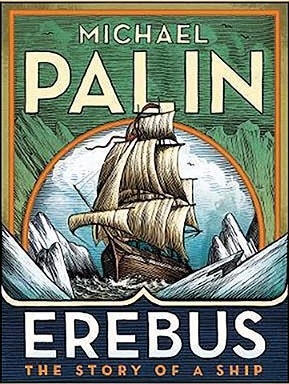Book Club
The final meeting of the Fulwood Methodist Church Book Club for this Methodist year will be held in September, too late to meet the deadline for this edition of the magazine. (The Methodist Church year runs along the lines of the school year in this country). That is a shame because I would like to be able to write about the discussions we held upon two books we are currently reading (one being an old favourite) as well as remarking upon the pleasure we no doubt will have had in meeting in person after such a period of on-line activity.
It was via the Zoom platform that we held our last meeting in June. Each year we try to choose one of the 66 books in The Bible, usually following the suggestion of The Methodist Church connexionally (that is nationally) who recommend one book for special study in whatever way local churches and groups may like to do so. This year their suggestion was The Gospel of Mark and we were very fortunate that the Rev’d David Wood agreed to join us from his home near Richmond. David is a distinguished Biblical scholar although he regards the Old Testament as his forte. Together we agreed to think about the whole book and not, as we so often do in church and privately, a chapter or smaller collection of verses. In other words we regarded the book as a ‘biography’ of Jesus of Nazareth. It was refreshing to think of the book in this way and illuminating to ask questions such as;
-
Why did Mark choose certain stories as he so obviously did in preference to others which were circulating at the same time?- Why does the book place so much emphasis upon the final weeks of Jesus’ life?
- Why is the ending of the gospel so uncertain and disputed by scholars?
- What ‘information’ was Mark seeking to convey and why?
- What do the scholars make of the similarities and differences between this gospel and the three others?
All in all, the crucial question reading in this way is to ask ourselves what sort of book this is. Is it a biography? Is it polemical, trying to make a particular point? Is it theological or philosophical? Is it history? Of course as we read this book as Christians we look to it to feed the relationship between ourselves and the risen Jesus, but is this its original purpose? We each I suspect had a slightly differently nuanced answer to that question at the end of our discussion.
With David as our sensitive guide, we learnt much but for
me the most enduring memory is how much we have lost when we limit our reading
of the Bible to short passages. The drama of the full text, its shape and
language all convey information which we tend to lose all too readily when we
concentrate upon a particular incident.
Over the summer (rain and shine) we have been reading two books. ‘Erebus’ by Michael Palin, is an account of the history of the famous ship of exploration, often much overlooked in favour of the ships of Cook, Scott, Columbus and other explorers. I am still ‘reading’ this book so won’t comment further. The second is ‘Rebecca’ by Daphne du Maurier, which many will have read or will have seen the film or heard the story as a radio play. For me, it is an old favourite – a work of great human emotion and so beautifully conceived in language of great precision. I speak of ‘reading’ because at the moment my ability to read for any length of time is limited as I await some eye treatment. So, I have been listening to these works read through Audible. What a delight and revelation that has been. Somehow the shape of the narrative and its presentation becomes crystal clear and, in the case of Rebecca, Anna Massie reads with precision and such a wide tonal and vocal range that my encounter with Rebecca this time has been the most memorable yet.
As soon as we have them, dates and books will appear on the Church website. We would be delighted if you joined us and helped to eat the biscuits!
Ken Wales